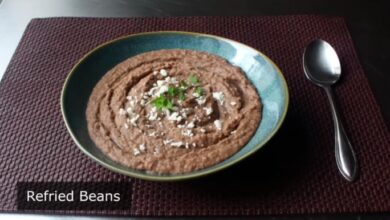Turkey Bacon Nutrition Facts
Turkey bacon is a popular alternative to traditional pork bacon, offering a similar taste and texture with potentially fewer health risks. This detailed guide provides an in-depth look at the nutritional profile, benefits, and potential drawbacks of turkey bacon.

Introduction
Turkey bacon has gained popularity as a substitute for traditional pork bacon, especially among those looking to reduce their calorie intake, manage weight, or avoid red meat for health or dietary reasons. Unlike pork bacon, which is made from pork belly, turkey bacon is crafted from chopped or minced turkey meat, combined with seasonings and preservatives, then formed into strips. While it can be a healthier option, it’s important to understand its nutritional content and health implications fully. This article delves into the nutritional facts of turkey bacon, comparing it with pork bacon, and discusses the benefits and potential risks associated with its consumption.
Nutritional Breakdown of Turkey Bacon
A single slice of turkey bacon (8 grams) typically contains:
- Calories: 29.8
- Total Fat: 2.1 grams
- Saturated Fat: 0.63 grams
- Cholesterol: 10.8 milligrams
- Sodium: 164 milligrams
- Carbohydrates: 0.343 grams
- Sugars: 0 grams
- Fiber: 0 grams
- Protein: 2.39 grams
Comparison with Pork Bacon
While turkey bacon generally has fewer calories and less fat compared to pork bacon, the differences in sodium and other nutrients are minimal:
- Pork Bacon (1 slice, 8 grams):
- Calories: 43.3
- Total Fat: 3.3 grams
- Saturated Fat: 1.1 grams
- Sodium: 162 milligrams
- Protein: 3 grams
Health Benefits of Turkey Bacon
Lower Caloric Content
Weight Management: With fewer calories per slice, turkey bacon can be a better option for those aiming to lose or manage their weight. Replacing pork bacon with turkey bacon can help reduce overall caloric intake.
Lower Saturated Fat
Heart Health: Turkey bacon has less saturated fat than pork bacon, which is beneficial for heart health. Lower saturated fat intake is associated with a reduced risk of heart disease.
Dietary Restrictions
Pork Alternative: For individuals who cannot consume pork due to dietary, religious, or health reasons, turkey bacon provides a viable alternative without sacrificing the enjoyment of bacon.
Potential Risks of Turkey Bacon
High Sodium Content
Sodium Intake: Despite having fewer calories, turkey bacon contains almost as much sodium as pork bacon. High sodium intake can lead to increased blood pressure and a higher risk of heart disease and stroke.
Processed Meat Concerns
Health Risks: Turkey bacon is still a processed meat. Consuming large amounts of processed meats can increase the risk of certain cancers, particularly colorectal cancer, due to the presence of nitrates and nitrites used in preservation.
Nutrient Balance
Lack of Fiber: Like pork bacon, turkey bacon lacks fiber and essential nutrients found in whole, unprocessed foods. It’s important to pair it with nutrient-rich foods to ensure a balanced diet.

Frequently Asked Questions
What is the calorie content of turkey bacon compared to pork bacon?
Turkey bacon contains approximately 29.8 calories per slice, whereas pork bacon has around 43.3 calories per slice. This makes turkey bacon a lower-calorie alternative.
Is turkey bacon healthier than regular bacon?
Turkey bacon is generally considered healthier than regular bacon because it has fewer calories and less saturated fat. However, it is still high in sodium and is a processed meat, which can carry health risks if consumed in large quantities.
Can turkey bacon be part of a weight loss diet?
Yes, turkey bacon can be included in a weight loss diet due to its lower calorie content. However, it should be consumed in moderation and balanced with other nutrient-rich foods.
Are there any risks associated with eating turkey bacon?
The main risks include its high sodium content and the potential health concerns associated with processed meats, such as an increased risk of cancer from nitrates and nitrites.
How can I make turkey bacon healthier?
To make turkey bacon healthier, consume it in moderation, pair it with whole grains, fruits, and vegetables, stay hydrated, and choose varieties without added nitrates.
Conclusion
Turkey bacon offers a viable alternative to pork bacon, with fewer calories and less saturated fat, making it an attractive option for those managing weight or avoiding pork. However, it’s important to consume turkey bacon in moderation due to its high sodium content and processed nature. By pairing it with nutrient-rich foods and maintaining a balanced diet, you can enjoy turkey bacon as part of a healthier lifestyle.
Read also:





